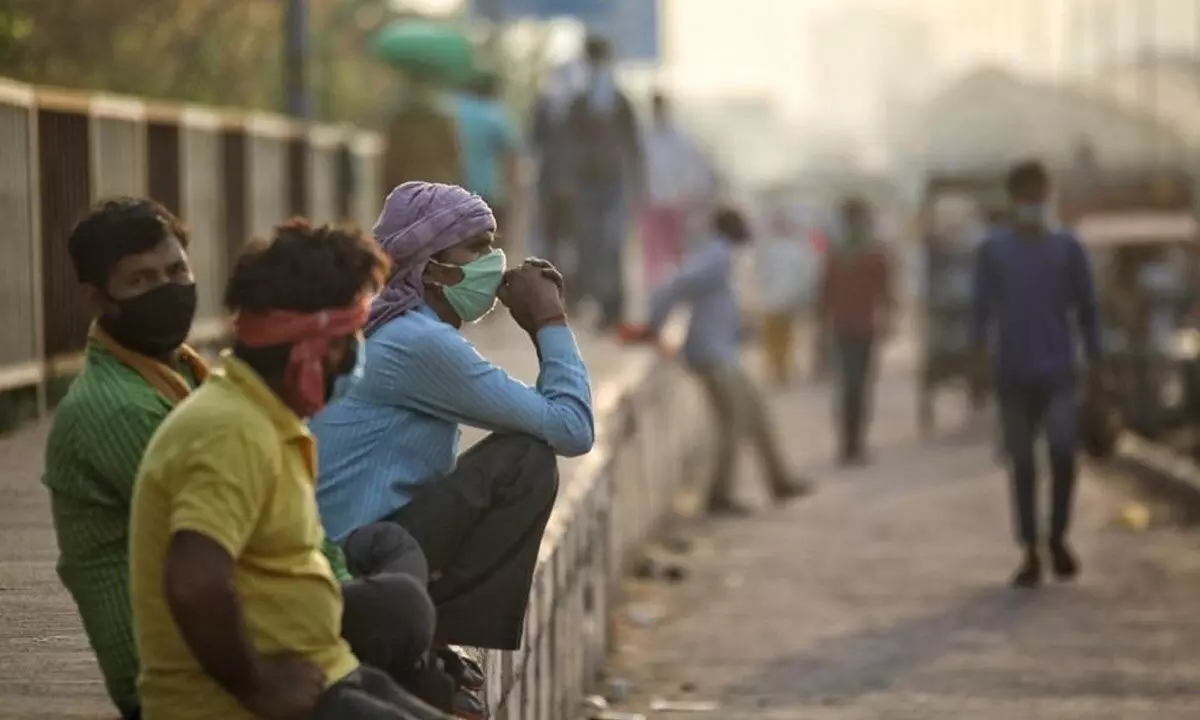Every 30 hours, world gets a new billionaire

Every 30 hours, world gets a new billionaire
The World Economic Forum’s (WEF) annual meeting in Davos is the session of the “house of the billionaires”.
The World Economic Forum's (WEF) annual meeting in Davos is the session of the "house of the billionaires". The billionaires of the world control nearly 14 per cent of the global gross domestic product (GDP) and have been prolific wealth creators — faster than even a fast-breeder nuclear reactor. Their annual congregation, thus they believe, is a special occasion for the world.
The five-day meeting concluded on May 26. They came with their cohorts: Heads of states, economists from multinational and multilaterals banks, chief executives of top multinational companies and the messengers — the media.
During the five-day meeting, they were overwhelmed with the ongoing global crises: The Russian invasion of Ukraine precipitating food and energy crisis, the pandemic's continual rampaging of the economy, and of course, the looming economic collapse. It gave an impression that the biggest wealth owners of the world were to collapse, thus stopping the trickle of wealth to the bottom of the pyramid, and ultimately causing billions of people into poverty.
In reality, the WEF meeting was like a grand act of deception. The crises they were so worried about indeed fuelled their wealth into unprecedented levels. The fear that the world would become poorer due to loss of the economy was a high cry of hypocrisy. Wealth created by the crises has just got accumulated with them, not even letting it to trickle down in any way.
Before the Economic Forum's annual meeting, non-profit Oxfam International releases its wealth generation and distribution report. This year's title is "Profiting from Pain".
Analysing wealth creation in the last two years – the pandemic period – Oxfam International found that every crisis that has struck this planet has hugely profited certain people, while hitting harder the already poor and pushing those in the margins to poverty trap.
Gabriela Bucher, executive-director of Oxfam International, said that the billionaires in fact convened in Davos to "celebrate an incredible surge in their fortunes". The pandemic and now the steep increases in food and energy prices have, simply put, been a bonanza for them, she said.
She was referring to the data from the Profiting from Pain report. In 24 months since the pandemic struck in 2020, the wealth of the world's billionaires increased more than the combined growth of nearly two preceding years.
Some 573 new billionaires have been added in the last two years.
The report segregated earnings of various corporations according to sectors. Corporations in the energy, food and pharmaceutical sectors — the three sectors in which the world faces crises — have recorded the maximum profits in their lifetimes.
There are 62 new billionaires in the food sector. For the billionaires in the food and energy sectors, the last two years have been a bonanza: A wealth increase of $1 billion every two days.
The top five energy companies — BP, Shell, Total Energies, Exxon and Chevron — made a daily profit of $2,600 every second as the world remained under lockdowns and extreme economic stress.
The pandemic has also created 40 new "pharma" billionaires. "Pharmaceutical corporations like Moderna and Pfizer are making $1,000 profit every second just from their monopoly control of the COVID-19 vaccine," said the report.
At the same time, high food prices, health cost, loss of livelihood and the overall dip in earnings will push at least 263 million into poverty in 2022. That is "at a rate of a million people every 33 hours."
Wages in the three sectors that profited the most have not increased at all. The burden of the crises is felt by the poor and the people in the margin.
Bucher said:
Billionaires' fortunes have not increased because they are now smarter or working harder. Workers are working harder, for less pay and in worse conditions. The super-rich have rigged the system with impunity for decades and they are now reaping the benefits.
To put it in perspective, the inequality is beyond comprehension and it has deepened during the pandemic like never before. For instance, according to Oxfam International, the top 10 richest persons in the world have more wealth than that of 3.1 billion people combined, or the total income of the bottom 40 per cent of humanity.
The other way to put it: The poor will never be able to reach the yearly earnings of the rich in their lifetime. Oxfam's calculation showed that it would take 112 years for a worker in the bottom 50 per cent to "earn what a person in the top 1 per cent gets in a single year".
(Courtesy: Down To Earth)









